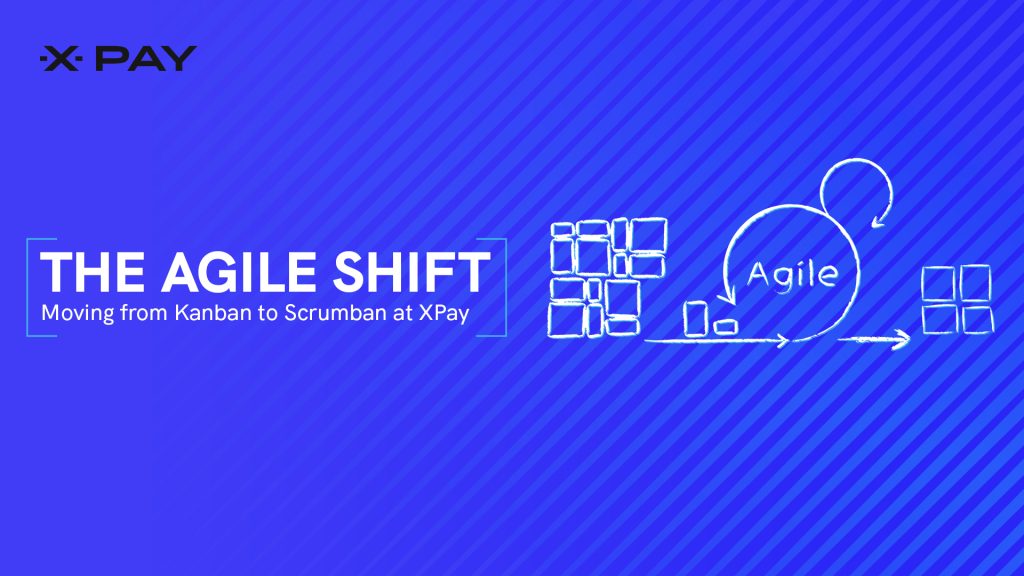Hey Developers, Tech Leads, and Agile Coaches!
Ever felt like your team’s Agile process needs restructuring? I’m Raed Elganainy, Director of Engineering at XPay, and I’ve been navigating the twists and turns of Agile methodologies. Let me give you the scoop on my journey so far.
In our dynamic industry, adaptability is key to success. With this transition, we aim to explore the strengths of both Kanban and Scrum methodologies, utilizing a hybrid approach tailored to our specific needs. Join me as we explore how integrating these methodologies can enhance efficiency and delivery capabilities.
The Transition:
As a firm believer in Kanban, I found it challenging to accept that my team might need a change. I wondered, why would anyone in the company dislike Kanban when our technical team loves it?
Although I still advocate for Kanban, here are a few reasons why it didn’t sit well with XPay:
- We lacked estimations for our deliverables, making it tough for our customer success team to provide accurate commitments.
- We were too focused on operational tasks, neglecting our strategic goals.
- We had no measurements, thus continuous improvement was difficult.
We could debate for hours whether these issues could be fixed with Kanban. I believe it’s possible, but the timeframe to achieve this varies depending on the team structure and experience. After discussing these challenges, we realized:
What we love about Kanban:
- Work in progress limit, which forces the team to self-organize and push tasks forward.
- Monitoring bottlenecks closely and resolving them promptly.
- Focus on value-driven tasks and waste minimization.
What we love about Scrum:
- Team commitment.
- Structured events.
- Clear, systematic measurements.
I wanted a low-cost option that wouldn’t require extensive training and process changes. I read about Scrumban, a mix of Kanban and Scrum, which uses the best practices of both worlds, and prepared a starting point for the team.
The first step was adding a biweekly team commitment without estimation, allowing for a higher failure rate (not meeting the goals). Then, we structured specific slots for:
- Planning
- Retrospective
- Estimation
For estimation, we used T-shirt sizing to keep it simple and avoided complex poker estimation. We also implemented gated production deployments twice a week, calculating velocity and throughput on staging servers only.
Scrumban isn’t a cure-all approach. We still use Kanban for ad-hoc tasks and major deliveries.
Conclusion:
Scrumban helped us drive more focus on the team level through sprints. It also provided more clarity to our customer success team on delivery plans and expectations. Planning meetings helped us balance customer-driven goals and company strategic goals in each sprint.
Finding the right process for a company is a continuous process that requires measurements and tailoring until you find the right potion. You cannot rely on a one-size-fits-all technique. Our journey shows the importance of adapting Agile methods to fit our needs. Let’s keep seeking methods that align with our goals.
This was my experience moving from Kanban to Scrumban. If you have a similar experience to share, are facing challenges with these methodologies, or have any questions, fill out this form and join us for “The Agile Shift: Moving from Kanban to Scrumban” Webinar. This session is perfect for developers, tech leaders, and agile coaches keen on fintech innovations or enhancing their teams workflow. I will be hosting this webinar to answer all your questions and have an in-depth discussion about this journey!
Brief Background on Raed Elganainy:
Raed Elganainy has over 10 years of professional experience in the software development field. In 2021, he began his current role as Director of Engineering at XPay. From 2018 to 2021, he was an Agile Coach & Co-Founder at Devsquads, where he coached teams, helped build their own processes and agreements, built the company culture, and improved internal processes. Raed was also an Agile Coach & Authorized Trainer at VIDSCOLA DWC – LLC, Dubai, UAE from 2018. From 2014 to 2018, he was a Business Development Manager and Business Analyst/Business Developer at Trendak. From 2012 to 2014, he was a Project Coordinator and VAS Software Developer at Victory Link. Finally, from 2010 to 2012, he was a Software Developer at Nebras Technology.
Raed Elganainy obtained a Bachelor of Science (BSc) in Bioengineering and Biomedical Engineering from Cairo University between 2005 and 2010. Raed has also obtained several certifications, including Accounting Fundamentals from the Corporate Finance Institute® (CFI) in August 2020, ICP-Agile Team Facilitation and ICP-Business Value Analysis from ICAgile in January 2019, Agile Fundamentals Certified Instructor from ICAgile in December 2018, ICP from ICAgile in December 2018, ICP-Business Value Analysis instructor from ICAgile in January 2015, and Certified ScrumMaster® (CSM®) from the Scrum Alliance® in November 2018.






